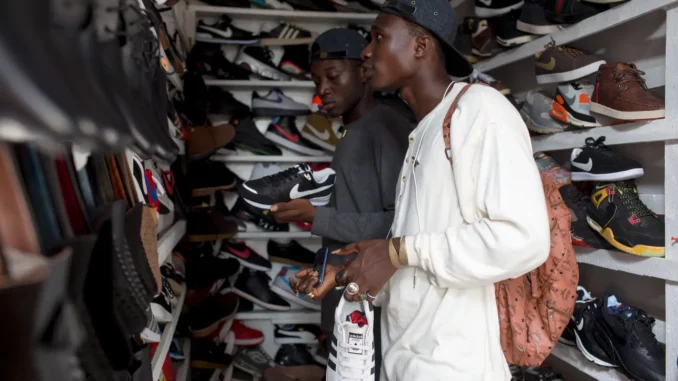
Shopkeepers in Accra, the capital of Ghana, closed stores Wednesday as part of a three-day protest against the soaring cost of living exacerbated since the Russian invasion of Ukraine.
In Accra’s business and vehicle parts district, usually paralyzed by traffic jams, only street food vendors were visible outside the closed shops. Burdened by a heavy debt burden, Ghana recorded historic inflation of 37 per cent in September, while the local currency – the cedi – has collapsed against the US dollar.
President Nana Akufo-Addo has been criticized for his economic management of the country and in particular for entering into discussions with the IMF – he once promised a “Ghana without aid” – to obtain a $3 billion loan. This decision has raised fears that the government will impose austerity measures that will further burden the population, which is already facing soaring prices.
The Ghana Traders’ Union (Guta) said the closure of businesses was a cry for help from the government and a way of expressing their frustration. “It is obvious that we can’t take (this situation) any longer,” said Guta president Joseph Obeng.
The Council of State, a constitutionally mandated advisory body to the president, tried to convince the traders to call off the strike, but to no avail. There was no comment from the government.
Ghana’s central bank raised its main policy rate by 10 percentage points this year to 24.5 percent in an attempt to control price growth. But this has increased borrowing costs for traders.
